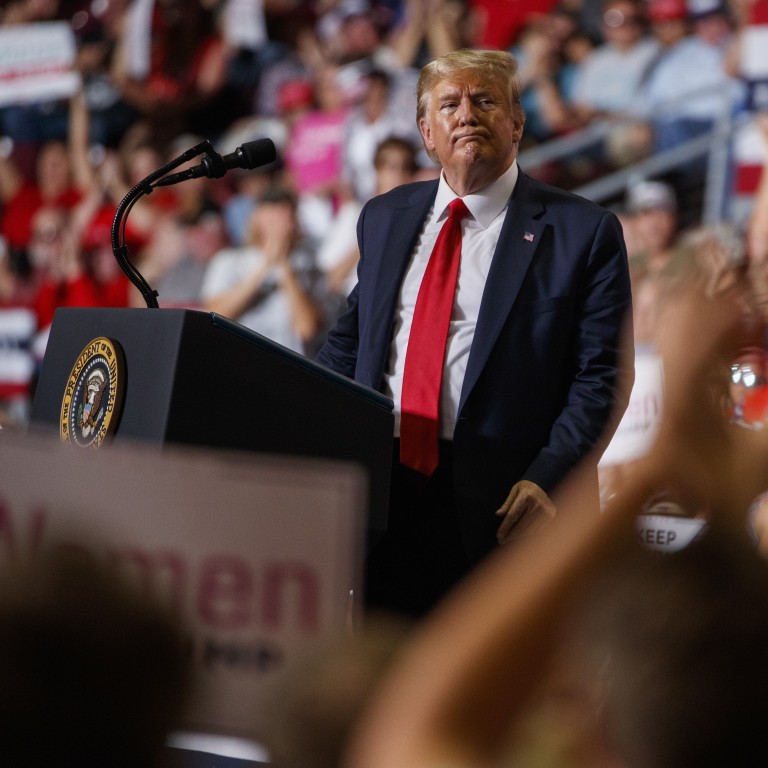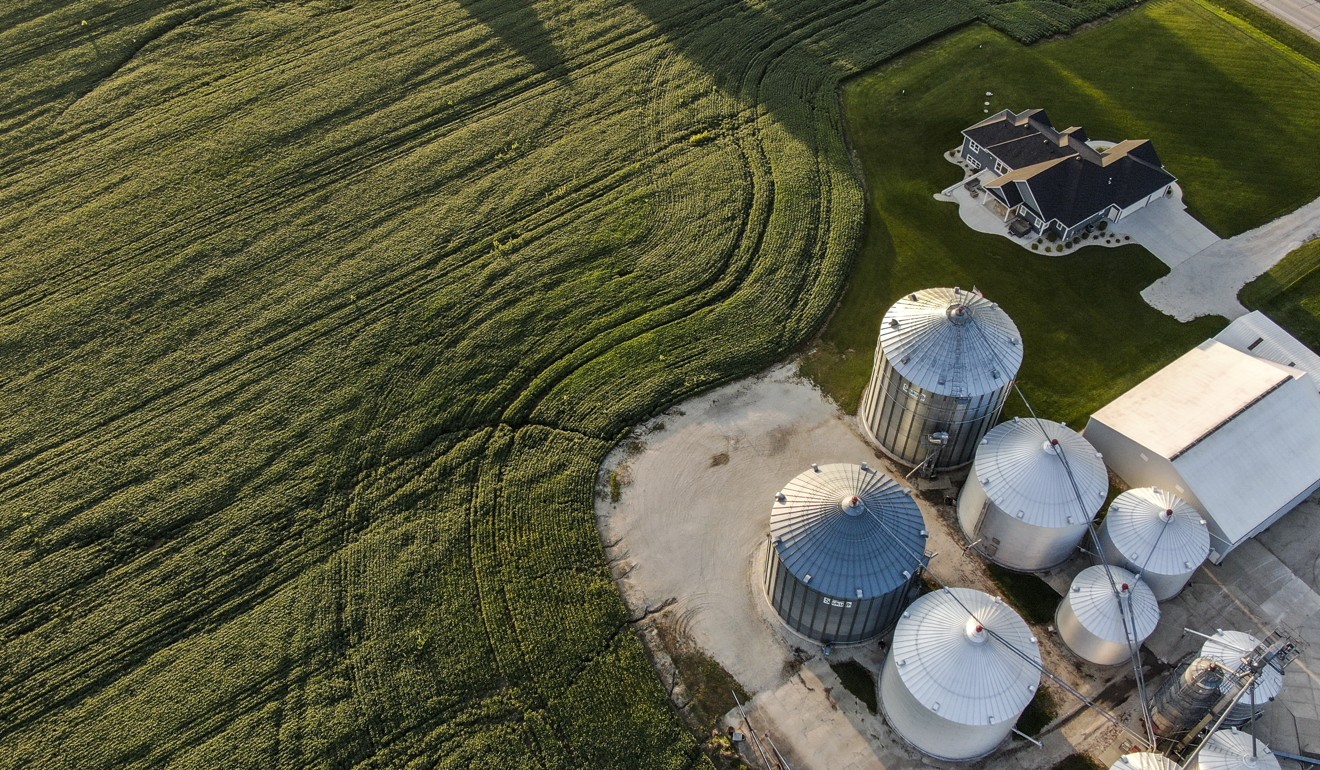
Donald Trump is waking up to the fact that ending the trade war with China will help him win in 2020
- The US president has figured he needs a deal with China to soften the economic impact the trade war is having on his voter base, particularly in the key swing states that helped propel him to power in 2016
Meanwhile, Beijing is taking a cautious but constructive approach. “We hope that China and the US can continue to meet each other halfway and take practical steps to create a good environment for talks,” Gao Feng, spokesman for China’s Ministry of Commerce, said last week.
In 2016, Trump captured more than 300 votes in the Electoral College. Three states that had gone with Democrat Barack Obama in 2012 swung narrowly to Republican nominee Trump four years later: Michigan by 0.2 per cent, Pennsylvania by 0.7 per cent and Wisconsin by 0.8 per cent.
Why Hong Kong’s protesters can’t count on Donald Trump
To secure the necessary 270 electoral votes in 2020, Trump would want to carry some or all of these three states. Here, he might have a problem though. There are signs that the economies of Michigan and Wisconsin are facing a few challenges, in part because of the US-China trade war.
General Motors and Ford both posted a fall in sales in China in the second quarter of the year. In the three months ending June 30, GM’s vehicle sales in China dropped 12.2 per cent and Ford’s sales were down 21.7 per cent. This followed first-quarter declines of 17.5 per cent for GM and 35.8 per cent for Ford.
Michigan voters might be less inclined to stick with Trump in the next election if this situation persists.
Meanwhile in Wisconsin, a state often referred to as “America’s Dairyland”, the farming community – a key constituency – is feeling the pinch of the trade tensions.
How much pain can China tolerate in the trade war? Trump will find out
Farm loan delinquencies have been rising across the US, and to a record high in Wisconsin, according to a Reuters analysis of data from the Federal Deposit Insurance Corporation.
At the end of June, 1.5 per cent of farm loans at FDIC-insured banks nationwide were at least 90 days past due or no longer accruing interest due to repayment doubts, the data showed. But the figure for farm loans in Wisconsin alone, as of June 30, was almost double that: 2.9 per cent.

There must surely be some connection between China’s retaliatory tariffs on US dairy products and the uptick in farm loan delinquencies in America’s Dairyland.
Trump may well conclude that his best hope of holding Wisconsin in 2020 lies in agreeing a deal to end his trade war with China, thereby taking some of the economic pressure off farmers in the state.
He should know his re-election in 2020 is not a given. The road to 270 votes in the Electoral College will not be an easy one.
With the trade war making an economic impact on the swing states Trump needs to win in 2020, he and his team may be doing their sums and realising the political necessity of securing a trade settlement with Beijing.
Neal Kimberley is a commentator on macroeconomics and financial markets

